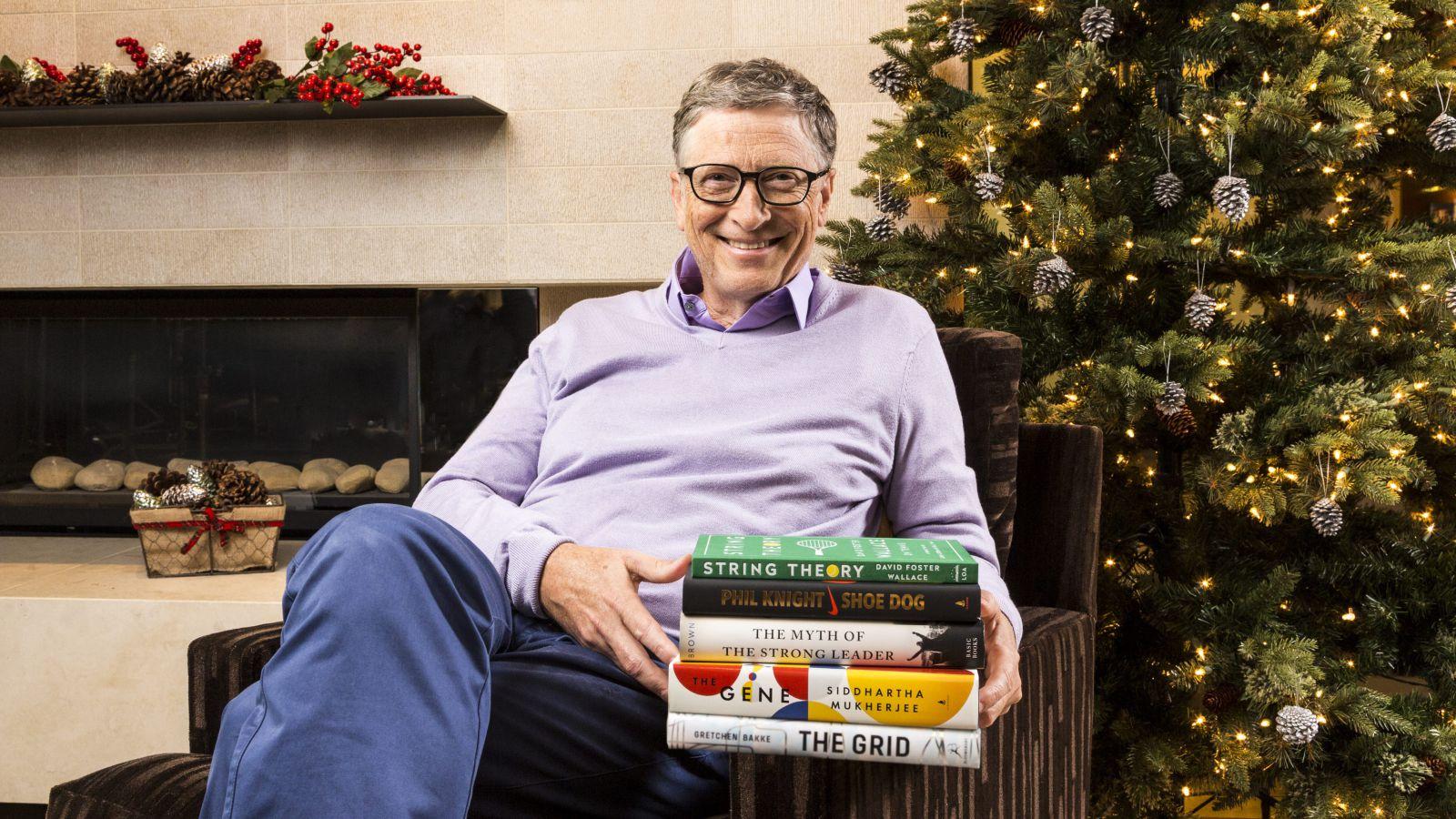Bill Gates lists his favourite books of 2016 – from String Theory to Shoe Dog
Gates: 'Reading books is my favourite way to learn about a new topic'

Your support helps us to tell the story
From reproductive rights to climate change to Big Tech, The Independent is on the ground when the story is developing. Whether it's investigating the financials of Elon Musk's pro-Trump PAC or producing our latest documentary, 'The A Word', which shines a light on the American women fighting for reproductive rights, we know how important it is to parse out the facts from the messaging.
At such a critical moment in US history, we need reporters on the ground. Your donation allows us to keep sending journalists to speak to both sides of the story.
The Independent is trusted by Americans across the entire political spectrum. And unlike many other quality news outlets, we choose not to lock Americans out of our reporting and analysis with paywalls. We believe quality journalism should be available to everyone, paid for by those who can afford it.
Your support makes all the difference.Bill Gates has revealed his favourite books of 2016 in a blog post and accompanying video on his website Gates Notes.
The Microsoft co-founder wrote: “Reading books is my favourite way to learn about a new topic.
“I’ve been reading about a book a week on average since I was a kid. Even when my schedule is out of control, I carve out a lot of time for reading.”
He goes on to list and summarise his five favourite books from 2016, and provides links to longer reviews for four of them.
1) String Theory – David Foster Wallace on Tennis
Gates explains that he’s on “a big Wallace kick right now”, joking that the late writer’s collection of essays on tennis “will make you look super smart” on a train or plane as it will look as though you’re reading about physics instead.
“As much as I loved the book for its insights on the game, I loved it just as much for the writing itself,” Gates says. “I now understand why people talk about David Foster Wallace with the same kind of awe that tennis fans use to talk about a Roger Federer or Serena Williams. Wallace’s ability to use language is mind-blowing. He’s an artist who approaches a canvas with the exact same oil paints everyone before him has used, and then applies them in breathtaking new and creative ways.”
2) Shoe Dog: A Memoir by the Creator of Nike – Phil Knight
This book details how Knight was fresh out of business school when he borrowed $50 from his father to start the company that would become Nike. Gates calls it an “honest reminder” of the mistakes required for success in business, and praises Knight for making himself appear vulnerable.
“Knight opens up in a way few CEOs are willing to do. He’s incredibly tough on himself and his failings. He doesn’t fit the mould of the bold, dashing entrepreneur. He’s shy, introverted, and often insecure. He’s given to nervous ticks – snapping rubber bands on his wrist and hugging himself when stressed in business negotiations.”
3) The Gene: An Intimate History – Siddhartha Mukherjee
Gates read Mukherjee’s book for a guide to new genome-editing technology and the ethical questions it poses.
“Within 10 years, it will be possible for clinicians to use genome editing to help people with diseases caused by a single faulty gene, such as cystic fibrosis – an unquestionably ethical use of this new technology. But what about making the repair in egg or sperm cells to save people from developing these diseases in later life?”
“This form of therapy could be highly effective, but it would mean that children born from these sperm or eggs would pass along their genetically modified genomes to their own children – altering the human germ line and crossing an ethical Rubicon.”
4) The Myth of the Strong Leader: Political Leadership in the Modern Age – Archie Brown
Political scientist Archie Brown argues for cooperative figures of power, as opposed to those with the most dominant ways of speaking. Gates notes that Brown could not have predicted quite how resonant these ideas would be in 2016.
“Whereas most books about political leadership are chronologies, mapping the rise and fall of leaders over time, this one is more of a taxonomy. Brown takes a deep look at the traits and tendencies leaders exhibit, and the categories they fall into, as a way of understanding the egos, motivations and behaviours responsible for so much progress, and so much suffering in the world.
“Throughout, he presents a new way to think about today’s challenges – and the people we entrust with solving them.”
5) The Grid: The Fraying Wires Between Americans and Our Energy Future – Gretchen Bakke
Gretchen Bakke, a cultural anthropologist, reimagines the US electrical grid with new energy sources in mind.
”Even if you have never given a moment’s thought to how electricity reaches your outlets, I think this book would convince you that the electric grid is one of the greatest engineering wonders of the modern world. I think you would also come to see why modernising the grid is so complex and so critical for building our clean energy future.”
Join our commenting forum
Join thought-provoking conversations, follow other Independent readers and see their replies
Comments